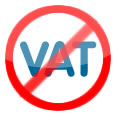There’s been a lot of discussion about Mitt Romney’s appeal – or lack thereof – among supporters of limited government.
To put it mildly, many libertarians and conservatives are underwhelmed by his less-than-stellar record on healthcare, his weakness on Social Security reform, his anemic list of proposed budget savings, and his reprehensible support for ethanol subsidies.
Notwithstanding this dismal track record, some advocates of free markets argue that anybody would be better than Obama.
But that’s not necessarily the case. Economic history shows that the burden of government often expands the most under Republicans, with Nixon and Bush (either one) being obvious examples.
On the other hand, even a skeptic like me has admitted that Romney’s record in Massachusetts is difficult to assess because he was governor of a very left-wing state and he had to deal with a state legislature with heavy Democratic majorities.
That being said, there’s a new development that suggests Romney may be an unacceptable alternative to Obama. In an interview with the Wall Street Journal, he basically said he is willing to consider a value-added tax for the United States. Here’s the relevant passage.
He says he doesn’t “like the idea” of layering a VAT onto the current income tax system. But he adds that, philosophically speaking, a VAT might work as a replacement for some part of the tax code, “particularly at the corporate level,” as Paul Ryan proposed several years ago. What he doesn’t do is rule a VAT out.
For those who are not familiar with a VAT, it is a version of a national sales tax, but imposed at every stage in the production process and embedded in the price of goods and services. Perhaps more important, it is despised by everyone who wants to limit the size of government. This video explains how it works and why it is a money machine for big government.
Simply stated, this is an awful tax. If it ever gets implemented in the United States, the battle will be over. America will descend to European-style stagnation, eventually leading to fiscal crisis.
Any politician that supports a VAT (or even hints at supporting a VAT) should not be allowed anywhere near the White House. That applies to Mitt Romney. And it should be the rule for Paul Ryan as well.
But what about Barack Obama, you may be asking. Hasn’t he said nice things about a VAT?
Not surprisingly, he has been sympathetic, appointing VAT sympathizers to high office and remarking that a VAT is “something that has worked for other countries.”
But there’s no way a VAT will happen if Obama gets reelected. Republicans will be overwhelmingly opposed, even if only for shallow reasons of partisanship.
But if Romney wins and decides to push a VAT, many Republicans will say yes because of loyalty (much as many GOPers went along with Bush’s statist agenda) and many Democrats will say yes in order to get a new source of revenue to expand government.
The consequences, as explained here, would be disastrous.
P.S. For a humorous – but accurate – perspective on the VAT, take a look at these clever cartoons (here, here, and here).

